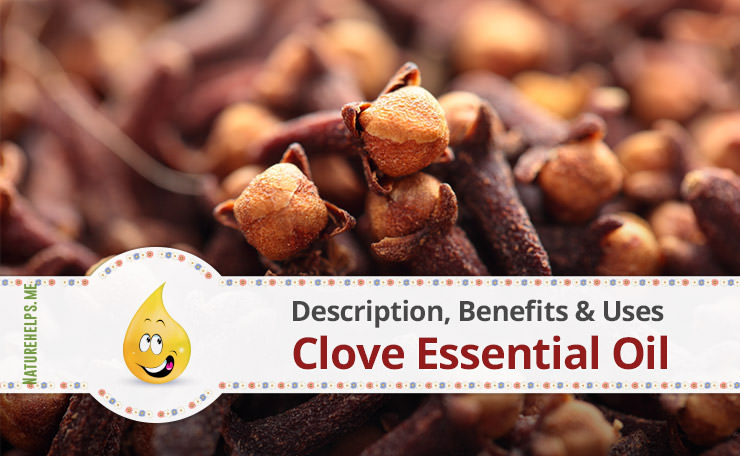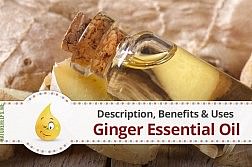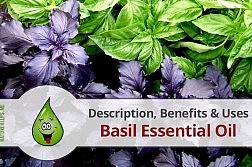For centuries clove has been used all around the world for many different uses, though one of the most prominent uses is in dentistry. Along with being great for your smile, this oil also has benefits for you mentally and physically that other oils just cannot compare to.
Clove is native to Indonesia and now grown in Madagascar, Zanzibar, West Indies, Phillipines, Tanzania, Spice Island, and countries with like tropical climate.
Cloves was known historically as the “Spice Islands” (they are now called the Malaku Islands). Because of their desirability and rarity, cloves have been among the most prized (and expensive) spices throughout recorded human history. Cloves are frequently referenced in historical texts from China, India and Europe, among others.
Cloves are an integral spice in the cuisines of many cultures and are used to flavor many dishes and beverages. Chai tea derives it’s characteristic flavor from cloves. Cloves are also frequently used to spice meat dishes and deserts. In addition to cooking, cloves are an important part of many aromatherapy programs.
Clove essential oil is highly toxic to a wide range of bacteria. It is also toxic to animals and humans, when it is ingested. When applied topically, clove essential oil has natural anaesthetic properties. Clove essential oil has a long history in dentistry, where it is used to numb the pain from toothaches and cavities. Cloves and clove essential oil are essential components of Ayurvedic and Chinese medicine. Clove essential oil has also been used as a sanitizer to disinfect surfaces and objects.
History of Clove Oil Benefits
During the Han dynasty (207 B. C. to 220 A. D.) those who addressed the Chinese emperor were required to hold cloves in their mouths to mask bad breath. Traditional Chinese physicians have long used the herb to treat indigestion, diarrhea, hernia, and ringworm, as well as athlete’s foot and other fungal infections and as a stimulant for the nerves. European doctors once breathed through clove-filled leather beaks to ward off the plague.
India’s traditional Ayurvedic healers have used clove since ancient times to treat respiratory and digestive ailments. In tropical Asia cloves have been given to cure diverse infections like malaria, cholera and tuberculosis and scabies.
Clove first arrived in Europe around the 4th century A.D. as a highly coveted luxury. The medieval German herbalists used cloves as part of anti-gout mixture. Once clove became easily available in Europe, it was prized as a treatment for indigestion, flatulence, nausea, vomiting, and diarrhea. It was also used to treat cough, infertility, warts, worms, wounds, and toothache. European hospitals use clove to treat viral hepatitis, bacterial colitis, hypertension, thyroid dysfunction, and fatigue.
Early American Eclectic physicians used clove to treat digestive complaints and added it to bitter herb-medicine preparations to make them more palatable. They were also the first to extract clove oil from the herbal buds. They used it on the gums to relieve toothache.
Traditional uses in America include treating worms, viruses, candida, and various bacterial and protozoan infections. Clove is also used for toothaches, bad breath, dizziness, cough, earache, colitis, epilepsy, palsy, and digestive upsets, as a sleep-inducer, anti-inflammatory, blood-thinner, mental stimulant, etc.
Effects & Actions of Clove Oil
Impact of clove oil in psycho-emotional sphere
Just like all essential oils, clove oil is likely to improve your mood and help you to be less stressed. Most commonly people diffuse clove oil throughout their home to enjoy the mental health benefits of clove. You will find yourself feeling more positive and ready to take on any project when your home is filled with the aroma of clove!
Indications in Usage of Clove Oil
Clove Oil for Respiratory System. Clove can help with asthma, bronchitis, chest infections, and other respiratory problems because of its antibiotic, antiseptic and antiviral properties. Drop a few drops of clove oil in a diffuser or in a steam inhalation to help with the above conditions and also to prevent the spread of bacteria.
Healthy Digestive System with Clove Oil. Because of its antispasmodic properties, clove has been used by many cultures to alleviate upset stomach. Massage 2-3 drops of clove oil mixed with an ounce of carrier oil such as olive oil on the abdomen and lower back in a clock-wise direction, or use in a diffuser.
Infection Treatment with Clove Oil. According to article “The chemical composition and biological activity of clove essential oil, Eugenia caryophyllata (Syzigium aromaticum L. Myrtaceae)” published in Phytotherapy Research in 2007 clove oil possesses antiviral and antibacterial properties, it is great for relieving any sort of infection. However it seems to work significantly well on ear infections. For this however it is recommended that you use a mixture of clove and sesame oil for best results! You can safely use this for adults and children – and it is better than your child taking antibiotics all the time if they are prone to ear infections as some are.
Clove Oil in Dental Care. One of the most common uses for clove essential oil is in dentistry. It has been used for centuries to fight cavities, gingivitis and many other dental problems. Many dentists even add clove into the mixture they use for fillings to prevent the need for a root canal in the future. It is also used to relieve pain from toothaches and you can also use a very diluted form of this oil to relieve the soreness in teething babies. In a study “Comparison of topical anesthetics (EMLA/Oraqix vs. benzocaine) on pain experienced during palatal needle injection” published in The Journal of Dentistry in 2006, a team of dentists recruited 73 adult volunteers and randomly split them into groups that had one of four substances applied to the gums just above the maxillary canine teeth: a clove gel, benzocaine, a placebo resembling the clove gel, or a placebo resembling benzocaine. Then, after five minutes, they compared what happened when the subjects received two needle sticks in those areas. Not surprisingly, the placebos failed to numb the tissue against the pain, but the clove and benzocaine applications numbed the tissue equally well.
Anti-fungal Properties of Clove Oil. It’s recommended by some to treat Candida. Clove teas, which can be made from either the clove buds or oil, are often recommended for Candida sufferers. the findings of the study “Antifungal activity of the clove essential oil from Syzygium aromaticum on Candida, Aspergillus and dermatophyte species” indicate that the clove oil from S. aromaticum has interesting potential as a therapeutic option against fungi that are pathogenic to humans. Clove oil might be useful in the clinical management of candidosis, particularly mucocutaneous presentations such as vulvovaginal candidosis, considering its fungicidal activity and the inhibition of germ tube formation.
Natural Antioxidant. According to the article “Chemical Composition and Antioxidant Properties of Clove Leaf Essential Oil” published in Journal of Agricultural and Food Chemistry, 2006 clove oil possesses antioxidant activity.
Even history tells us that clove oil was one of the main essential oils that protected people from getting the Bubonic Plague in Europe. A group of robbers were caught by the the king and he asked them why they weren’t ill or dead from the plague exposure they said it was because they covered themselves with this protective blend of oils which included clove.
Contraindications in usage of clove oil
- Avoid during pregnancy.
- Can irritate skin, so always mix with a carrier oil before using on your skin.
- Can irritate mucous membranes, so use the inhalation method sparingly.
- Do not use on a tooth that is currently being worked on by a dentist for root canal.
- Do not use in baths.
Clove essential oil does not seem to produce any side effects, but like many essential oils, it is not recommended for use with pregnant women or children. Some essential oils may cause irritation or allergic reactions in people with sensitive skin so it is wise to do a patch test before using regularly.
Blends well with: eucalyptus, pine needle and spice oils like cinnamon, black pepper, ginger and citrus oils like orange and tangerine.
References:
Antifungal activity of the clove essential oil from Syzygium aromaticum on Candida, Aspergillus and dermatophyte species (Journal of Medical Microbiology, 2009,58)
The chemical composition and biological activity of clove essential oil, Eugenia caryophyllata (Syzigium aromaticum L. Myrtaceae), Phytotherapy Research, 2007
Comparison of topical anesthetics (EMLA/Oraqix vs. benzocaine) on pain experienced during palatal needle injection” (The Journal of Dentistry, 2006)
Chemical Composition and Antioxidant Properties of Clove Leaf Essential Oil (Journal of Agricultural and Food Chemistry, 2006)




